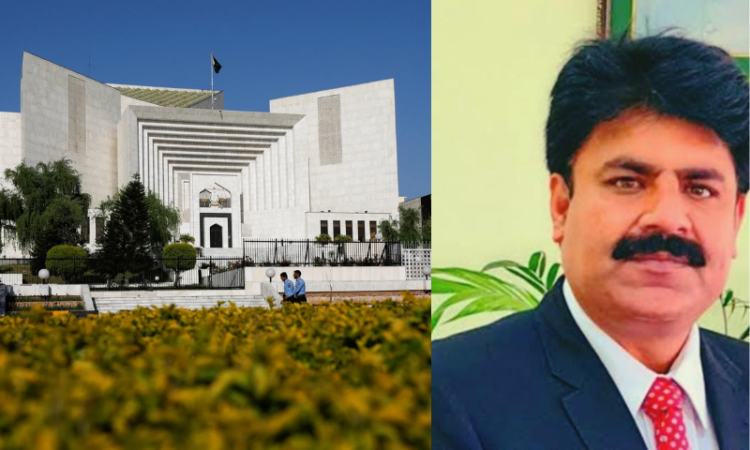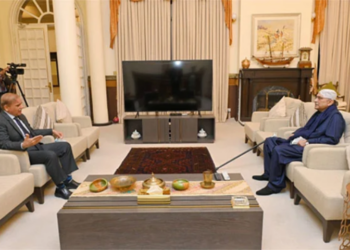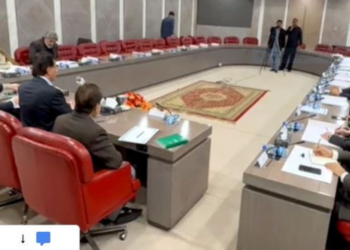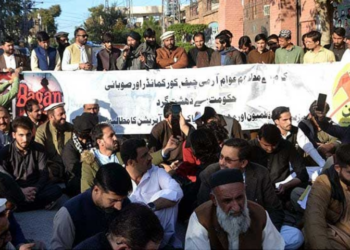By Hafiz Ehsaan Ahmad Khokhar
Parliamentary legislative competency is defined all over the world as a parliament’s ability to enact or amend the Constitution and to make or repeal laws within such parameters of the Constitution. Article 239 of the Pakistani Constitution gives power to the Parliament to alter or amend any provision of the Constitution with a two-thirds majority of its total membership. Parliament has passed so far 25 Constitutional amendments since promulgation of 1973 Constitution, but the Supreme Court of Pakistan neither ruled that any amendment adopted by the Parliament was ultra-vires nor declared that was against the fundamental framework of the Constitution, despite the fact that power of judicial review has lied with Supreme Court.
The present 26th Constitution bill, 2024 proposes make several amendments to the Constitution, mostly addressing the provisions of Articles 17, 48, 51, 63A, 106, 175, 175A, 181, 184, 185, 186, 187, 200, 209 and others Articles of the Constitution, such as, the establishment of a Constitutional Court to hear cases about specific provisions of Articles 184, and 186 in addition to the current Supreme Court, the union of the judicial and parliamentary commission for choosing the judges for superior courts under Article 175A of the Constitution, the implications of the defection amendment concerning Article 63-A of the Constitution and the accountability of judges through amendment in Article 209 of the Constitution and the transfer of judges from one High Court to another High Court under Article 200 of the Constitution are probably among its main points.
The Constitution’s Article 175 to onwards address the composition, jurisdiction, and operations of the Supreme Court, Federal Shariat Court and High Courts. It establishes the court system’s hierarchical structure and lays down the fundamental ideas about the jurisdiction and separation of powers between the judiciary and other organs of state institutions.. This Article grants the Parliament the only authority to determine which court will have jurisdiction over what matters and for what categories, and simultaneously, Parliament has the power with a two-thirds majority assigns, changes or transfers the jurisdiction of different courts or one court to another court like other countries do where the Parliamentary form of govt exists.
The necessity for Pakistan to establish a Constitutional Court and the appointment and removal of judges, especially from Superior Courts, have undoubtedly been discussed and debated in legal and political circles over the years. Despite Pakistan’s current legal system, the idea of establishing a separate Constitutional Court has occasionally gained traction but has not been implemented due to political confrontations. Almost all political parties later accepted the Charter of Democracy, which even the major political parties earlier signed in 2006 and agreed to establish the Constitutional Court in addition to the regular Supreme Court, and this document still exist and recognized by various major political parties.
The need to create, similar to the Constitutional Courts like many other countries, a which focused solely on constitutional, fundamental rights, and intra-governmental dispute issues has been the driving force behind current demand for a Constitutional Court in Pakistan. Constitutional courts can provide a mechanism for judicial review, ensuring that laws and decisions made by legislative or executive branches do not violate constitutional provisions or principles.
The foundation of the Constitutional Court is accepted globally and does not conflict with the ideas of the separation of powers and the independence of the judiciary. Currently, there is a list of 70 countries which include, Germany, Italy, Austria, France, Spain, Belgium, Russia, South Africa, Egypt, Senegal, Brazil, Mexico, South Korea, Indonesia, Thailand , Turkey , Iran, Kuwait, Chile, Chad, Romania, Portugal, Poland, Hungaryand many others where the ordinary Supreme Court and the system of Constitutional Courts coexist. Generally, the Parliamentary process with set tenures appoints judges to Constitutional Courts.
One of the main drivers of the demand for the establishment of a Constitutional Court in Pakistan is the overwhelming volume of cases almost 60000; the Supreme Court is handling and that cases must be resolved quickly where the interest of common man is involved there but pending since long. This concept also seeks to reduce judicial activism, settling disputes between government bodies at earliest, and to establish a court to expeditiously decide the matters of interpretation and enforcement of a country’s Constitution.
Establishing a Constitutional Court in Pakistan is a wise and legal move by the Parliament for providing a separate forum for the interpretation and enforcement of a country’s Constitution, intra-governmental disputes and for maintaining the constitutional integrity, protecting human rights, and ensuring that government actions adhere to the rule of law like many other countries successfully do, however this should be done and materialized through transparency, consensus and by giving more focus on maintaining the separation of powers and advancing the rule of law, and that definitely would be big challenge for the Parliament and for new Pakistani Constitutional Court.
There are in addition to the above, here is a roadmap package to achieve a better Pakistani justice system;
- The Constitutional Court ought to be founded in a manner that is entirely distinct from the current legal and administrative status of the Supreme Court. It should exclusively concentrate on constitutional matters, the upholding of fundamental rights, repeated mal-administration by government officials, human rights concerns, and intra-governmental problems while retaining its independence. The criteria for appointment and retirement of the proposed Constitutional Court should be suggested very transparently.
- The composition and Jurisdiction of the Constitutional Court may be clearly defined as being a separate legal entity with no role to present the Supreme Court, and simultaneously it should be established at every provincial level and in Islamabad to deal with Constitutional matters. The Constitutional Court’s judges must be appointed among by at least 40% of the Supreme Court’s top professional lawyers.
- The status of fundamental rights may extend to Articles 32, 34, and 37, which deal with the welfare of state and local government empowerment.
- The Constitution’s Article 175A may be amended by adding a clear mandate, composition, and procedure for filling open High Court seats. Additionally, a Judicial Commission—a Parliamentary Committee—may be established to facilitate the appointment of Supreme Court judges, Chief Justices of High Courts, and new judges of High Courts, who may include two members each from the opposition and Treasury of the National Assembly and Senate.
- By changing Articles 178 and 194 of the Constitution, the Chief Justices of the High Court and Supreme Court may be appointed from a group of three or five of the most senior judges, and those judges who are superseded should stand retired.
- The Practice and Procedure Act of 2023 may be amended and applied to the High Courts and the Proposed Constitutional Court concerning case fixing, bench composition, and concerns of public interest and constitutional law.
- A six-month Time limit may be described for the decision of every case before the Constitutional Court, Supreme Court and High Courts.
- The Supreme Judicial Council’s authority under Article 209 of the Constitution ought to be expanded, and it ought to encompass the assessment of superior court judges’ performance. The mandate and composition of the Supreme Judicial Council be increased including the performance evaluation of every judge of the High Court as provided in Article 209 of the Constitution by having five senior judges of the Supreme Court and five chief justices of the High Courts.
- The retirement age for Supreme Court justices should not be raised from 65 to 68 years old, and for High Court judges from 62 to 65 years old. There should not be any extension directly or indirectly to any Chief Justice or judges of the Supreme Court or the High Court Judges. At least 40% of appointments for the judges of the Supreme Court are to be made among the good lawyers of the Supreme Court as per the spirit of Article 177 of the Constitution.
- Transfer of judges from one High Court to another High Court as provided in Article 200 of the Constitution if required may be suitably amended through the two-third decision of the combined Judicial Commission.
- Police and Investigation Reforms, and enhancing Law Enforcement Capacity be ensured throughout the country through implementation of Police Order 2002.
- Legal reforms should also be introduced in High Courts and district courts of Pakistan for expeditious dispensation of justice.
- The system of Alternate Dispute Resolution should be strengthened at all adjudication levels.
- Full House Committee of both Houses (Senate and National Assembly) separately be constituted for new legislation and re-overhauling of the present criminal, administrative, accountability, regulatory framework, taxation, and civil justice system. The key points would be for the improving judicial Transparency, better Access to Justice across the country, removing Delays in Court cases and backlogs at all courts levels from the Supreme Court to District in next 6 months and to make more simpler and complexity free procedures of Courts, CRPC, 1898 and CPC,1908.
In a nutshell, the Parliament must make now it a top priority to address the need for a strong, vibrant and expeditious justice system in Pakistan as per principles of policy enshrined in Articles 29 to 38 of the Constitution which guarantees equality, justice, supports the rule of law, and fosters public trust by coordinating all stakeholders of the justice sector and through negotiation with all political parties especially within and outside the Parliament. This requirement is imperative. It is undeniable that Pakistan can create a sound and effective judicial system that is more effective, fair, and sensitive to the interests of its citizens by combining constitutional, institutional, legal, and technical changes.









